The Basics of Professionalism
It is essential to display professionalism during job interviews. Professionalism is a key factor in creating a positive and successful impression. Knowing the basics of proper job interview etiquette can be the difference between getting a job offer or not.
To display professionalism in a job interview, you must maintain a professional attitude. Speak clearly and confidently, and be sure to make eye contact. Make sure you are dressed appropriately in a suit and tie or a nice dress and avoid wearing too much jewelry or fragrance. Additionally, it is important to greet your interviewer with a firm handshake and a smile.
You should also be aware of your body language throughout the interview. Sit up straight, lean slightly forward, and nod your head while the interviewer is speaking to show you are engaged. Avoid fidgeting, crossing your arms, or rolling your eyes.
It is also important to show respect and appreciation to the interviewer. Be sure to thank them for their time and express your interest in the job. Additionally, answering questions honestly and completely is crucial. Do not be afraid to ask questions as well. Showing genuine interest in the job and the company can go a long way towards making a good impression.
In order to be successful in an interview, it is important to display professionalism throughout the entire process. Make sure you are well-groomed and dressed appropriately. Speak clearly and confidently and be sure to maintain a positive attitude. Additionally, show respect for the interviewer and be honest and open with your answers. Following these simple tips can help ensure that you make the best impression and land the job.
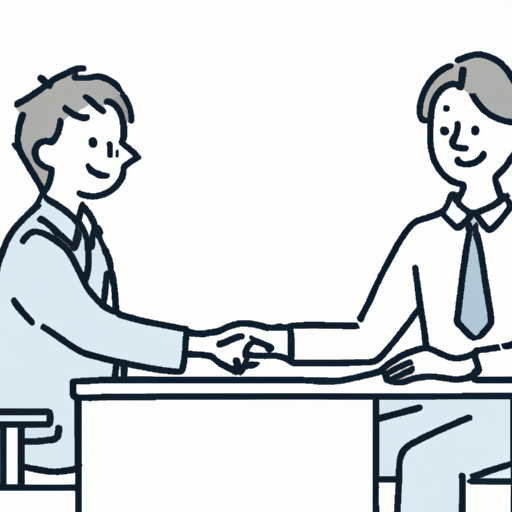
Doing Your Research
Doing research on a company and position you are interviewing for is an important step to take as you prepare for a successful job interview. Researching the company and position you are interviewing for will give you the confidence you need to answer questions and express your qualifications. Not only will it help you answer questions, but it will also give you the opportunity to ask questions of your own.
When researching, you want to ensure you are looking at the right websites and sources. It is important to look at the company’s website, as well as their social media accounts, to get a better understanding of the company and the position you hope to fill. In addition to this, you should look for recent news articles related to the company and any press releases they have issued. This will give you an up-to-date overview of the company and help you better understand what you might be walking into.
This research can also help you brainstorm questions about the job that you can ask during the interview. This can show that you are not only interested in the job, but also in the company and its values. Doing your research can also help you think of ways your skills can benefit the company and how you can stand out from other candidates.
Don’t forget to research the people you’ll be meeting. If you know who will be interviewing you, take a few minutes to look them up on LinkedIn. This can help you learn more about the interviewer’s professional background, which can make you more comfortable during the interview. It can also give you an idea of what type of questions they may ask.
Finally, do your best to be familiar with what the company is looking for in a new hire. You can do this by looking at reviews on Glassdoor and other job-related websites. This will help you ensure that your resume is tailored to the job you are applying for and that you are prepared to answer any questions related to the job.
Doing your research is an important part of the interview process. Taking the time to do so can give you the confidence you need to go into your interview and show the company why you are the best candidate for the job. Doing research can help you stand out from the competition and give you the best chance of success in your job interview.
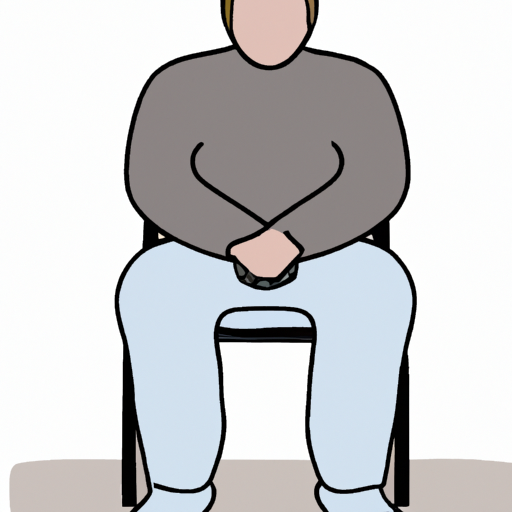
First Impressions Count
First impressions count, and that’s especially true in the context of a job interview. It’s important to make sure that the interviewer sees you in the best light possible. You want to make the right impression and show them that you’re the right person for the job.
When you walk into the room, you should be confident and composed. Smile and make sure to make eye contact with the interviewer. Shake their hand firmly and introduce yourself. Make sure to thank them for taking the time to meet with you. If you’re nervous, take a few deep breaths.
Also, dress to impress. Make sure that your clothes fit properly and that you look professional. Your clothing should be in line with the company’s dress code. If you’re unsure, it’s better to err on the side of caution.
Be sure to show up on time. Aim to arrive about 10 minutes early so that you have time to get settled in. Make sure you have all the materials you need for the interview, such as a copy of your resume.
Be prepared and practice common interview questions. Think about what you want to say and practice saying it out loud. You want to sound confident and articulate. You should also prepare questions to ask the interviewer. This will show that you’re interested in the job and that you’ve done your research.
Be courteous and polite. Don’t interrupt the interviewer and listen carefully to what they have to say. You should also avoid speaking negatively about other people or organizations.
Finally, think of the interview as a two-way conversation. The interviewer is trying to get to know you and find out if you’re the right fit for the job. At the same time, it’s your opportunity to find out more about the company and decide if it’s the right place for you.
Making a good first impression is essential in a job interview. Make sure to be confident, prepared, and polite. If you do these things, you’ll be one step closer to a successful interview.
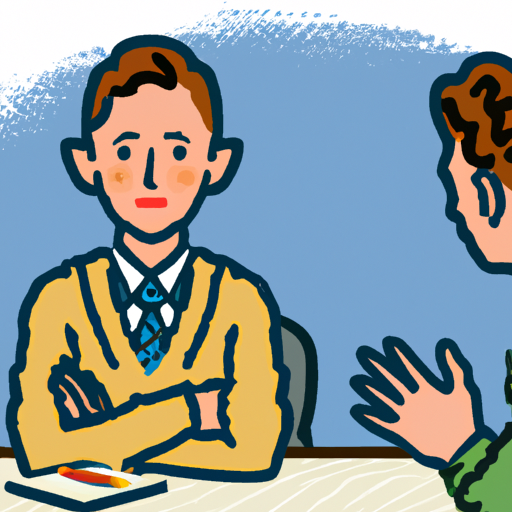
Navigating Awkward Questions
Job interviews can be nerve-wracking experiences, especially when you’re thrown off by a difficult or awkward question. It’s important to remember that interviewers ask these questions to get a better understanding of who you are and how you handle yourself in various situations. Navigating these awkward questions can be a challenge, but with the right preparation and attitude, you can ensure a successful interview.
First, it’s important to remain calm and composed when faced with an awkward question. It can be tempting to become defensive or to try and deflect the question, but this can be a sign of insecurity and lack of preparedness. Instead, take a deep breath and give yourself a few moments to think before responding. This will show the interviewer that you’re confident and capable of handling tough questions.
Second, be honest and straightforward with your answers. Interviewers understand that not every answer will be perfect and that it’s normal to stumble over an uncomfortable question. What matters the most is that you give an honest and genuine answer. Even if you don’t have the perfect response, the interviewer will appreciate your candor and openness.
Third, use your body language to show the interviewer that you’re confident and engaged in the conversation. Make sure to maintain eye contact and sit up straight in your chair. You can also use hand gestures and facial expressions to communicate your thoughts and show that you’re engaged in the conversation.
Fourth, be prepared with questions of your own. Asking thoughtful questions about the job, the company, and the interviewer’s experience can be a great way to show your interest and enthusiasm. It will also give you a chance to redirect the conversation to a more comfortable topic.
Fifth, practice how you’ll answer difficult questions before the interview. Think about potential questions and practice answering them out loud. This will help you feel more prepared and confident when it comes time to answer the interviewers questions.
Finally, remember to smile and thank the interviewer for their time. This will show them that you appreciate the opportunity and that you’re grateful for the experience.
Navigating awkward questions during a job interview can be intimidating, but with the right preparation and attitude, you can ensure success. By staying calm, being honest, using body language effectively, and practicing your answers, you can show the interviewer that you’re confident and capable of handling the situation. With the right approach, you can make a positive impression and increase your chances of landing the job.
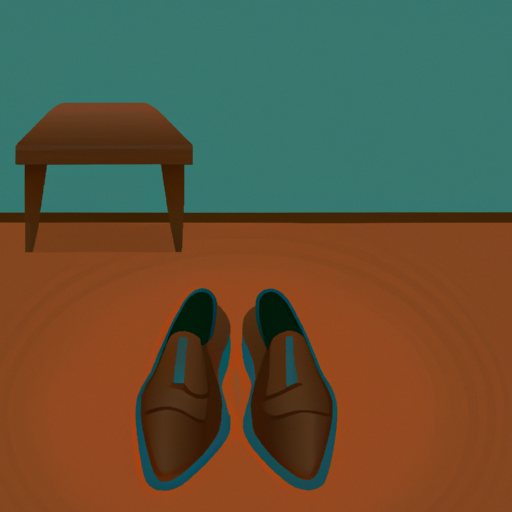
Using Active Listening Techniques
When it comes to successful job interviews, the most important skill you can foster is active listening. Active listening involves both verbal and nonverbal communication to ensure that your interviewer feels heard, understood, and valued. This technique can help you create a meaningful connection with your interviewer and demonstrate that you’re capable of effectively communicating in a professional setting.
To start, make sure to maintain eye contact with your interviewer. This conveys respect and interest in the conversation. Embrace any pauses in the conversation and use them as an opportunity to digest what has been said and formulate an appropriate response. Refrain from interrupting, as this can make your interviewer feel as if their words are not being taken seriously.
Additionally, use body language to demonstrate your engagement in the conversation. Lean slightly forward and keep your posture relaxed and open. Avoid crossing your arms or slouching, as this can give the impression that you are not interested in the conversation.
Verbally, make sure to use reflective statements to show your interviewer that you’re listening and taking their words into consideration. Acknowledge the points they are making and, if appropriate, ask questions that demonstrate your understanding of their ideas. This can also give you an opportunity to add unique insights to the conversation and show off your knowledge of the topic.
When it comes to providing answers to questions, be sure to avoid providing one-word answers. Offer detailed responses and provide examples to illustrate the points you are making. This can help your interviewer get to know you better and understand why you are the right candidate for the job.
Finally, don’t be afraid to ask your interviewer questions. This helps to show that you’re engaged in the conversation and have done your research. It is also a great opportunity to find out more information about the job and ensure that it is the right fit for you.
Overall, using active listening techniques is a great way to demonstrate your communication skills in a job interview and make a lasting impression on your interviewer. By showing that you value their words and ideas, you will be able to create a meaningful connection with your interviewer and make the most of your job interview.
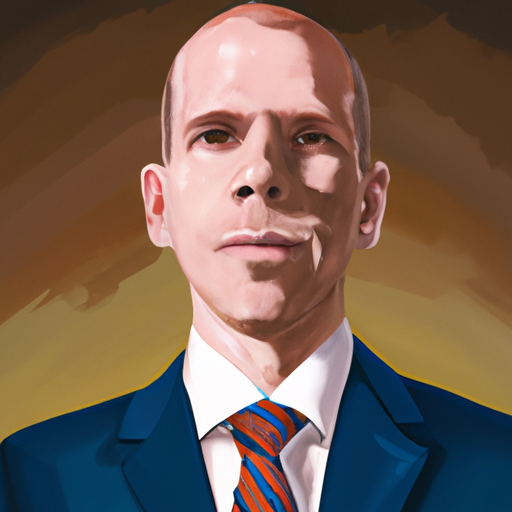
Asking Questions
Asking questions during a job interview is a great way to show that you are engaged and interested in the position. It is also a great opportunity to gain further insight into the role and the company. Asking questions during a job interview is a great way to showcase your knowledge and insight into the industry and the role.
It is important to approach asking questions in a professional manner and to be mindful of the questions you are asking. It is best to avoid questions that could be seen as too personal or that could be seen as an attack on the interviewer or the company. Instead, it is best to focus on questions that help you gauge the company culture, the job responsibilities and the team dynamics.
Before the interview, it is a good idea to write down a few questions that you would like to ask. This will help you during the interview if you are feeling nervous or unsure of what to say. It is also a good idea to prepare questions with the interviewer in mind. For example, if you know the interviewer has worked in the industry for a long time, you can ask them questions about the industry and their experiences.
When asking questions during the interview, it is important to be mindful of the time. It is best to limit the number of questions you ask and try to keep them as concise and to the point as possible. It is also important to make sure that your questions are relevant to the role. Asking questions that have nothing to do with the position can be seen as disrespectful and off-putting.
It is also important to remember that the interviewer may not be able to answer all of your questions. This could be due to a variety of reasons such as the interviewer not knowing the answer or the company having a policy against disclosing certain information. If this is the case, it is best to thank the interviewer for their time and move on to the next question.
Overall, it is important to approach asking questions during a job interview in a respectful and professional manner. Asking questions is a great way to gain further insight into the role and the company and can help you prepare for the next steps in the interview process.
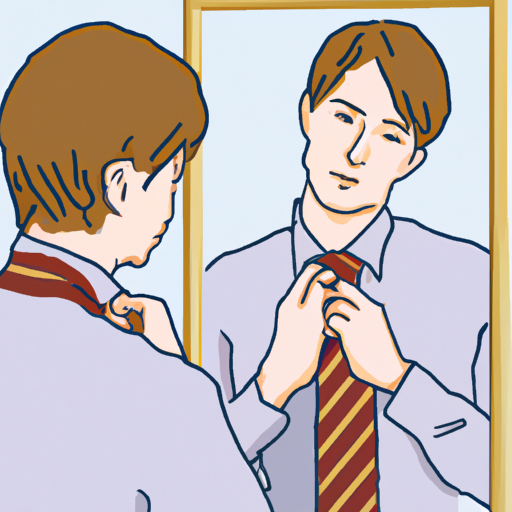
Dressing for Success
When it comes to job interview etiquette, you want to dress for success. It’s important to make a good first impression, and it starts with the way you dress. The right outfit says that you take the job seriously and that you’re a professional. It also communicates a level of respect to the interviewer.
You should always dress in a professional manner, regardless of the dress code at the company you’re interviewing for. Even if the company has a casual dress code, it’s best to err on the side of caution and dress in a more formal style. Men should wear a suit and tie and women should wear a dress or skirt and blouse.
When it comes to your color palette, stick to neutral colors like black, navy blue, gray, and brown. These colors are classic and professional and make a good impression. Avoid bright colors, flashy jewelry, and bold patterns. They can be distracting and take away from your professional appearance.
When it comes to the fit of your outfit, it should be well-tailored and comfortable. Your clothes should not be too tight or too loose. Make sure you have enough room to move freely and to sit comfortably. It’s also important to make sure your clothes are clean and wrinkle-free.
Another important part of dressing for success is your shoes. Wear a pair of polished leather shoes that are in good condition. Avoid wearing sneakers or sandals, as these are not appropriate for interviews.
Finally, accessorize carefully. Your accessories should be simple and professional. Avoid wearing too much jewelry or crazy-colored ties. Stick to classic watch styles and plain ties’
By following these job interview etiquette tips, you can make a great first impression. Dressing for success is an important part of conveying a professional appearance and communicating a level of respect to the interviewer. Remember to stick to neutral colors, choose comfortable and well-fitted clothing, wear polished leather shoes, and accessorize carefully. Doing so will help you to make a great impression during your interview and give you the best chance at success.

Staying Positive & Engaged
Staying positive and engaged during a job interview is essential for a successful outcome. A positive attitude and an eagerness to share your skills and experience can go a long way in making a good impression on the interviewer. When you are being interviewed, it can be easy to let your nerves take over and feel out of control, but it is important to remain focused and engaged, and to stay positive and enthusiastic about the opportunity.
To ensure you stay positive and engaged during an interview, start by taking the time to prepare for the interview. Research the company and the position, practice your answers to potential questions, and be sure to dress appropriately. This will help you feel more confident and relaxed when you arrive. Additionally, it is a good idea to bring a notebook and pen to take notes or jot down ideas. Not only will this help you remember important information, but it can also help to keep you focused and engaged during the interview.
Also, it is important to be mindful of your body language. Make sure you maintain good posture, smile, make eye contact, and use your hands to gesture when appropriate. Doing so will show the interviewer that you are interested in the role and that you are confident in your abilities.
Additionally, being prepared with questions to ask the interviewer is a great way to stay engaged and demonstrate your interest in the job. Questions should demonstrate that you have done your research and are truly interested in the position and the company.
Finally, one of the most important things you can do to stay positive and engaged during a job interview is to be yourself. Don’t try to be someone you’re not. Instead, focus on the skills, knowledge, and experience that you have and make sure the interviewer is aware of why you are the ideal candidate for the job.
Overall, staying positive and engaged during a job interview is essential for a successful outcome. Not only will it help you make a good impression, but it will also help you to remain focused and demonstrate your interest in the job and the company. With a bit of preparation and practice, you can make sure that you are putting your best foot forward in your next job interview.
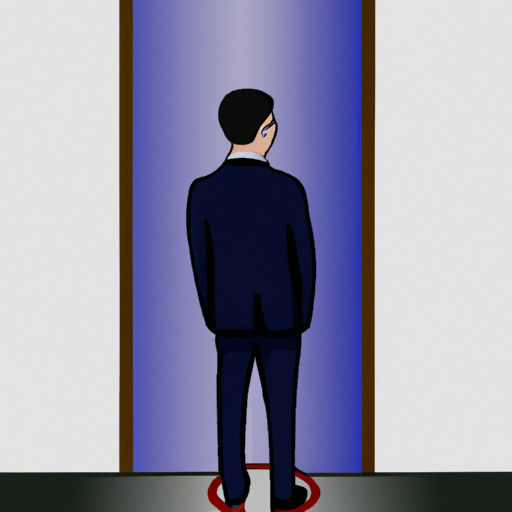
Following Up After the Interview
Good job interview etiquette is key to making the best impression and eventually landing the job of your dreams. Following up after the interview is yet another important part of the job application process. After a successful interview, it’s important to express your appreciation and demonstrate your interest in the position.
When sending a follow-up note, there are a few key points to keep in mind. First, take the time to craft a unique thank-you note or email. Mention something specific from the conversation to demonstrate that you really paid attention. Showing that you’re willing to go the extra mile will make you stand out from the competition.
In addition to expressing your gratitude, use the follow-up note to provide additional information that you may not have had a chance to mention during the interview. Did you come across a new article or book related to the job? Did your research help you develop a new idea or approach to the role? Now’s the time to mention these ideas, as it will show your enthusiasm and commitment.
It’s also important to follow up in a timely manner. Sending a thank-you note or email within 24 hours of the interview will show that you’re eager and prompt. Just make sure not to rush your message. Take the time to make sure it’s well-written and free of spelling or grammar errors.
Finally, don’t forget to stay in touch after the interview. Connect with the employer on social media or professional networks like LinkedIn. If you have any questions, don’t hesitate to reach out.
Following up after the interview isn’t just about sending a thank-you note. It’s about making a lasting impression and demonstrating your commitment to the job. By taking the time to craft a unique and thoughtful message, you’ll be sure to stand out from the competition and increase your chances of success.





